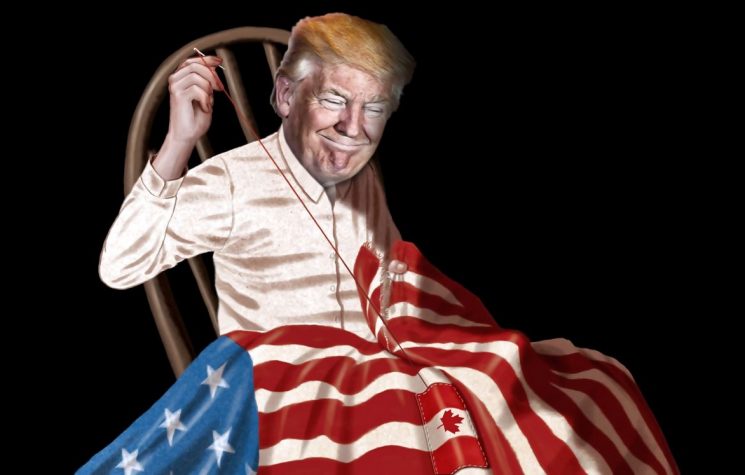The “grand pact” for the Middle East will certainly mean a major shift in some international power dynamics.
Join us on Telegram![]() , Twitter
, Twitter![]() , and VK
, and VK![]() .
.
Contact us: info@strategic-culture.su
Nothing moves without something else moving
An old sage once told me, several years ago, “In the Middle East, nothing moves without something else moving”. He meant that everything that happens in the Middle East is the result of decisions made elsewhere, while the Middle East influences everything else. If there is war in Palestine today or tomorrow, for example, it is not decided by the Palestinians; if someone threatens Iran or wants to destroy Syria, it is not decided by the local people. There is always someone else somewhere trying to pull the strings.
I cannot say whether that wise old man was right or not, but there is certainly some truth in his words. For almost a century, events in the Middle East have been the result of encounters and clashes between regional powers, with substantial involvement from actors who are very distant but very influential.
A reliable and high-ranking source has told me that in recent days, an agreement has been reached between Iran and the U.S., with the mediation of the United Arab Emirates, in the long negotiations that began in recent months, which are the result of years of turbulent relations. Well, Iran would be allowed to implement the development of nuclear power for civilian use in exchange for renouncing its nuclear programme for military use. In return, Iran would have secured the imprisonment of Bibi Netanyahu in about 7-8 months, with a major international impact.
If this were the case, it would be a very significant geopolitical agreement.
From Iran’s point of view, the fight against Zionism and the liberation of Al Quds (Jerusalem) is an existential priority. Netanyahu has waged years of struggle against the Axis of Resistance and a huge genocide of Palestinians, constantly threatening Iran and attacking precisely when he had the opportunity. All Western countries have echoed Netanyahu, one after the other, and we all remember his historic speech to the U.S. Congress, with 40 minutes of thunderous applause. This would therefore be a political victory, ad personam, with a strong social impact.
However, it is true that it is not the defeat of Zionism. A political leader, a man of the institutions, an international criminal would be defeated, but not Zionism itself. Netanyahu represents an extreme right-wing political area, not all Israelis and not even all Zionists, who are divided under various political labels. The question remains as to who will come next: probably a man even more closely linked to the Anglo-American axis, perhaps more moderate in his “final solutions” and certainly in business with Donald Trump, ready to rebuild Palestine into a mega-resort for rich Americans and Israelis.
On the American side, every victory against Iran is a great victory. They are probably still bluffing, but in any case, Netanyahu’s replacement is not decisive for the plans of Trump and his entourage. Instead, the new positioning in the Mediterranean and near the Suez Strait becomes very important. The cards on the table would be reshuffled and some events in the region could change significantly.
The current balance is marked by growing tension between the American and Israeli visions. It is not just about Trump — whose alliance with the Gulf monarchies had opened the door to the so-called “Abraham Accords” — but a deeper strategic divergence. The United States has a global agenda: Israel is important, but it is not everything. For Washington, stability in the region is also crucial to contain Russia, China and Iran. For Netanyahu and the messianic Israeli right, however, only one thing matters: completing the colonization of historic Palestine, at any cost.
Thirdly, we have the UAE, which is the real winner at the table. Its strategy is proving profitable: it offers itself as an intermediary for political affairs, business, finance and international mediation. It is an attractive hub that involves many countries and manages to accommodate complicated situations in a functional manner. The Emirates want Iran to calm down and not get heated against that part of the Arab world that was built by the U.S.
Reaching an agreement without giving ground
This sort of “grand pact” for the Middle East is not guaranteed to bring peace to the region, and perhaps that is not its aim. It will certainly mean a major shift in some international power dynamics.
As for the role of China and Russia in the Middle East and with Iran, we must remember that, by virtue of their pragmatism, they support whoever they deem appropriate and who can benefit them before anyone else. This means that China and Russia will inevitably play on two fronts, helping both Iran and Israel in their regional soft power policies.
To all intents and purposes, Beijing and Moscow should be considered only as strategic partners, but nothing more: they do not follow the same ethnopolitical principles, they do not have the same majority religious beliefs, they are not historically aligned, and they do not share the same political ideology.
Having taken this step, we must not believe that the battle of the Axis of Resistance will fail. What is changing is a detail within a larger plan, which is of vital importance to the Iranian people. The battle of the Resistance will not be interrupted, and the struggle for Palestine will not be abandoned.
Regarding the aforementioned Abraham Accords, Steve Witcoff recently stated that new states will join the pact, including Azerbaijan, Armenia, Syria and Lebanon, extending the terms of the document and giving the United States effective commercial and military control. Trump’s stated goal is to create an axis that will include Zionists, Anglo-Saxons, Saudis and their Salafi followers, up to the Muslim Brotherhood, without forgetting the Turks. All this is aimed at Iran, but in fact it will be a counterweight to Russia and China. Because for Trump, Iran is just “that thing” that stands between America and its domination of the Middle East.

































